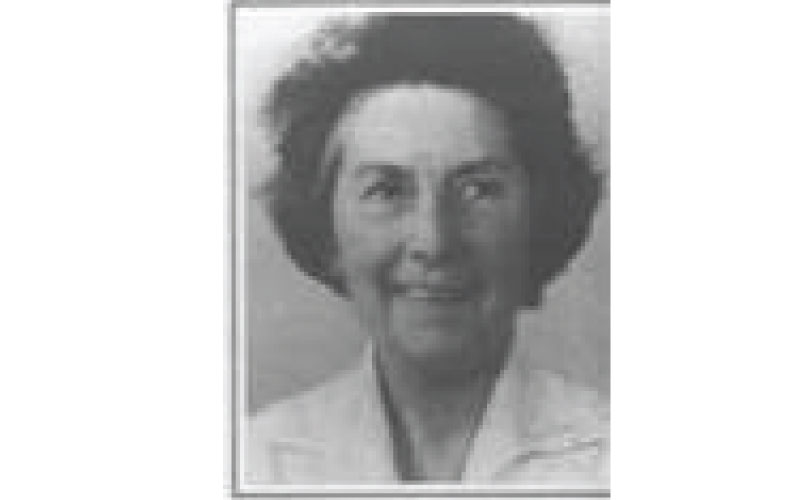
Grace Williams, (1906-1977)
GRACE Mary Williams, one of the most important and influential 20th century Welsh composers, was born the coastal town of Barry, Glamorgan.
The eldest of three children, Grace was encouraged from an early age to pursue her interest in music.
Both parents were school teachers who loved music. Grace often played the piano for her father’s choir rehearsals, and at home she played the violin in a trio with her brother Glyn, a cellist, and her father, a pianist.
In 1923, she entered University College, Cardiff on a scholarship.
After graduation in 1926, she moved to London to attend the Royal College of Music where one of her most important and influential teachers was composer Ralph Vaughan Williams, whom she called “Uncle Ralph.”
In 1930, Grace Williams won the pretigious RCM Octavia Travelling Scholarship which enabled her to complete her training in Vienna with Egon Wellesz (1885-1974).
Here she had the opportunity to indulge herself in the music of Wagner, Richard Strauss and Mahler and the late Austro-German Romantic tradition.
Although she did not initially care for Mahler’s music, it would later influence on her own compositions.
After her return to London in 1931, the 25-year-old composer was music master at Camden School for Girls and visiting lecturer at Southlands College of Education. Hen Walia, an orchestral work based on folktunes with the lullaby Huna blentyn as a centerpiece, was composed during this time and became her first work to receive frequent performances.
In 1936, she composed an Elegy for string orchestra which contained hints of the highly individual music that she would compose years later. Camden School was evacuated to Grantham during the Second World War, living at Stonebridge and St Catherine’s House and sharing KGGS with the local girls.
She composed several works here, including the Sinfonia Concertante and her first symphony, most of which she subsequently destroyed.
One of her most popular works, Fantasia on Welsh Nursery Tunes (1940) was written during this period. “Sea Sketches” for string orchestra, written in 1944 is the first work in which we recognise her mature style.
In 1945, she returned to her home town, remaining there for the rest of her life, dedicating herself more or less full-time to composition. In the last 20 years of her life, Grace Williams composed music that marks her as a composer of importance in Wales.
For her contributions to music, she was offered the OBE in 1966, but turned it down. A good performance of her music meant more to her than a decoration. On her 70th birthday in 1976, she received tributes from admirers throughout the world, and the Welsh BBC broadcast a program of her music.
Her major orchestra works had been recorded.
Three months later, she experienced the first signs of what would prove to be a fatal cancer.
Surgery and radiation therapy did not improve her condition and left her debilitated.




Leave a Reply
You must be logged in to post a comment.